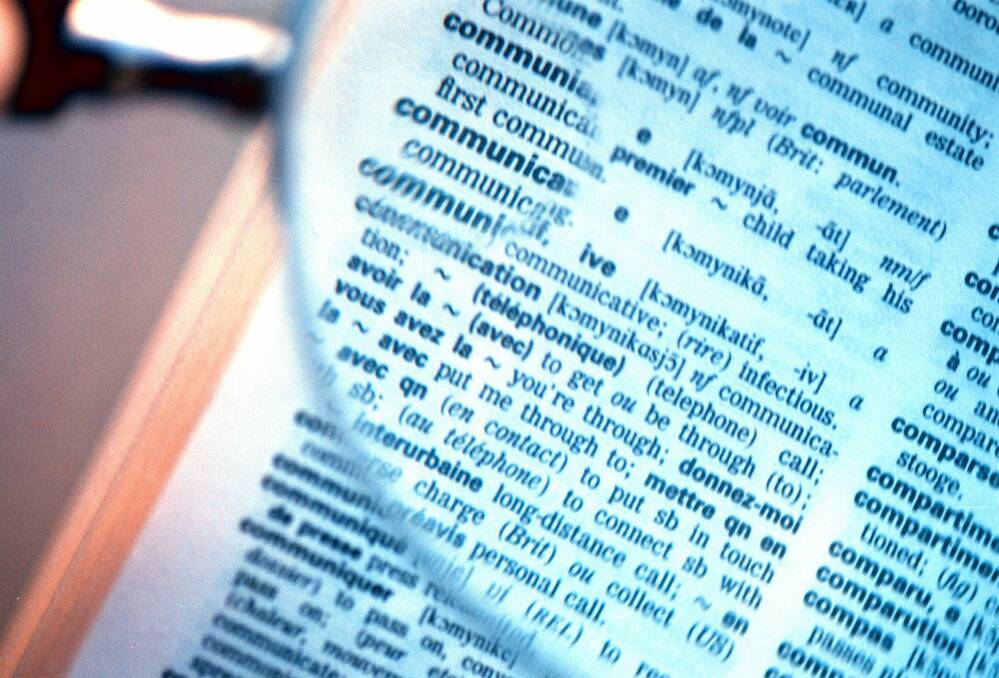Sharing economy v. An economic system based on sharing of access to goods, resources, and services, typically by means of the internet.
Subscribe now for unlimited access.
or signup to continue reading
It's two words not one, but the term "sharing economy" has been named Australia's 2015 word of the year.

The Australian National Dictionary Centre, based at the Australian National University, has delivered its annual word of the year based on the prominence and frequency of use in Australia in 2015.
Last year it was "shirtfront", which hails from the lexicon of Aussie Rules football but reached peak use in 2014 after the then Prime Minister Tony Abbott threatened to get up close and personal with Russian President Vladimir Putin.
Centre director Amanda Laugesen said the term sharing economy had gained currency due to the impact of debates around the introduction of ridesharing service Uber as well as increasing popularity of crowdfunding and accommodation sharing apps.
The sharing economy is goods or services facilitated by online technology, Dr Laugesen says.
She noted the term had "feel-good connotations in emphasising sharing".
"Some regard it as a positive good for society, but others have pointed to its corporate dimensions and its potential to displace industries and businesses," Dr Laugesen said.
This was particularly applicable to the introduction of Uber which has threatened the traditional taxi market.
Sharing economy was chosen from a shortlist including the terms dark web, lawfare, marriage equality, and periscope.
Dr Laugesen said this year a number of terms relating to economic, cultural and social change found their way into the media landscape, particularly those stimulated by the impact of digital technology.
Periscope is a live streaming app that allows a mobile phone to be used to record and broadcast video in real time.
"We saw new social media technologies such as Periscope gain ground," she said.
"The name is already being used as a verb. A number of official events have been periscoped, including an ACT cabinet meeting in August."
Dark web refers specifically to websites that use encryption tools to hide the identities of hosts and users of a site, often in order to facilitate illegal activities.
"The term dark web also became more prominent through 2015, attesting to the more dangerous capacities of the web," she said.
Lawfare refers to the use of the legal system to effect a political or social outcome and was used in Australia particularly in environmental activism contexts, while marriage equality refers to the legalisation of same-sex as well as heterosexual marriage.
The methodology for coming up with a word of the year includes searching Oxford UK's Australian content and searching Fairfax Media's archives through Factiva.
A word or phrase must be in low use the year preceding its rise in popularity to truly reflect its status.
Dr Laugesen said the longlist had included "agile", a term Prime Minister Malcolm Turnbull used in two keynote speeches relating to aspiration for Australia and its economy.
"Disruption", "Fleek" (or on-fleek) in reference to being perfect or on point, and Grexit (in relation to Greece's near exit of the European Union) were also considered.
Dr Laugesen conceded the choice of words or phrase always brought with it debate about whether it deserved the title.
"People will always be critical, even around the fact it is a phrase and not a word – but phrase of the year doesn't quite have the same ring to it."
She also noted the Oxford Dictionary had given its word of the year to an emoji (a laughing face), while the American Dialect Society had given it to the hashtag #blacklivesmatter.

